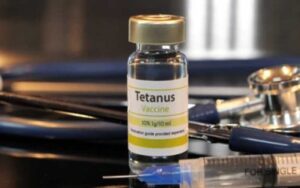Indonesia known to many as Wonderful Indonesia, it brings you the second largest tropical forests, many pristine beaches with great dive sites and surfing waves, amazing hikes to active volcanoes and wildlife.
Recommended Travel Vaccinations For Indonesia
| VACCINE | HOW DISEASE SPREADS | PREVENTIVE ACTIONS |
| Hepatitis A | You can get Hepatitis A through contaminated food or water in Indonesia, regardless of where you are eating or staying. | Get vaccinated.Eat and drink safely |
| Hepatitis B | You can get hepatitis B through sexual contact, contaminated needles, and blood products, | Get VaccinatedAvoid sharing body fluidsAvoid non sterile medical or cosmetic equipment |
| yellow fever | You can get Rabies from the Saliva of the infected animals. | Get vaccinated. Prevent mosquito bites |
| Typhoid | You can get Typhoid through contaminated food or water in Indonesia. Specially if you are traveling in rural areas. | Get vaccinatedPrevent mosquito bites |
| Japanese encephalitis | Japanese encephalitis, a mosquito-borne disease that typically occurs in rural areas | Recommended depending on itinerary and activities.May be given to short- and extended-stay travellers, recurrent travellers and travel to rural areas.Present throughout the country.Most cases from |
Routine Vaccinations For Indonesia
| VACCINE | HOW DISEASE SPREADS | PREVENTIVE ACTIONS |
| Measles, Mumps and Rubella Vaccination (MMR) | Measles, mumps, and rubella are viral diseases.Measles starts as a fever, cough, runny nose, conjunctivitis (pinkeye), and a red, pinpoint rash that starts on the face and spreads to the rest of the body.The mumps virus usually causes swelling in glands just below the ears, giving the appearance of chipmunk cheeks.Rubella is also known as German measles. It can cause a mild rash on the face, swelling of glands behind the ears, and in some cases, swelling of the small joints and low-grade fever. | Get vaccinated.Avoid sharing contacts with infected people.wash your hands using soap. Avoid infected person coughs, sneezes or even talks |
| Tetanus, Diphtheria and Pertussis (Tdap) Vaccination | Tetanus enters the body through breaks in the skin. This is most often cuts or wounds made by contaminated objects.Tetanus enters the body through a wound or cut. It affects the brain and nervous system and causes extremely painful muscle spasms.Diphtheria is a very contagious infection that makes it difficult to breathe. In severe cases, it can cause heart and nerve damage.Pertussis, or whooping cough, is an extremely contagious respiratory infection that can lead to severe breathing problems, especially in infants | Get vaccinated. |
| Chickenpox (Varicella) Vaccination | Chickenpox is a highly contagious infection caused by the varicella-zoster virus. It causes a blister-like rash across the body.Chickenpox can spread from someone with shingles to other who has never had the disease. This happens if a person touches or inhales droplets of the shingles blisters. | Get vaccinated.Avoid sharing contacts with infected peopleAvoid sharing contacts with infected people |
| Polio Vaccination | “Polio (poliomyelitis) is a potentially deadly, life-altering disease. The virus enters the body and attacks the brain and spinal cord, often causing paralysis | Get vaccinated.Avoid sharing contacts with infected people.Avoid contaminated food or water, though sneezes or coughs can transmit the virus |
| Flu Shot | The flu vaccine is the most effective way to prevent illness caused by seasonal influenza viruses. The flu vaccine reduces a person’s risk of developing flu-related illness | Avoid sharing contacts with infected people.Avoid contaminated food or water, though sneezes or coughs can transmit the virus |










